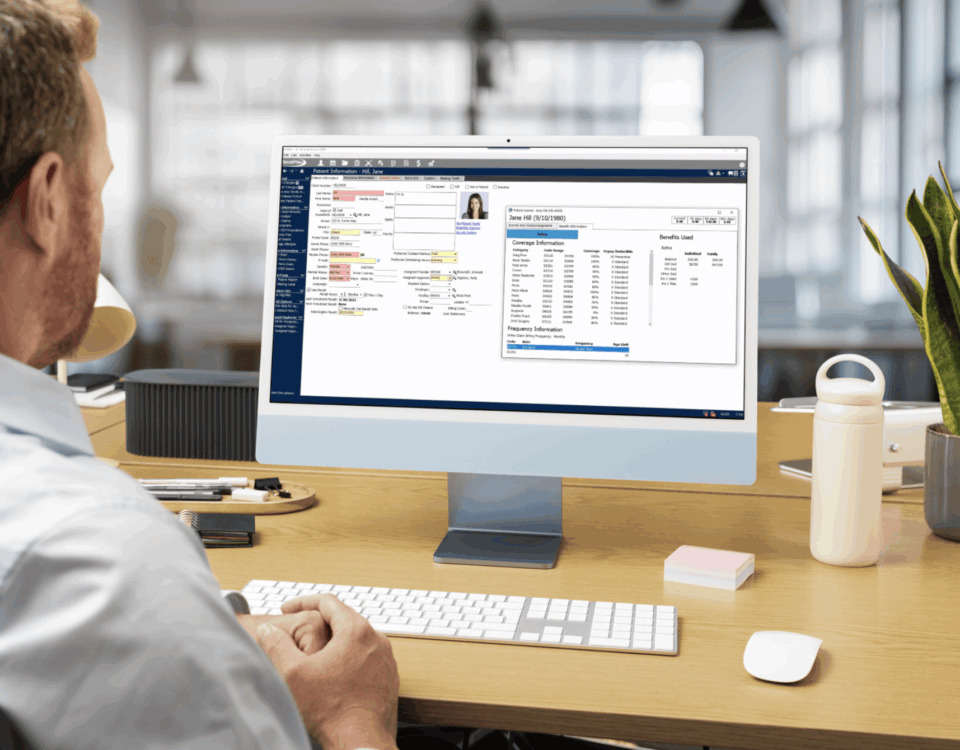A dental office manager often wears many hats, handling day-to-day administrative tasks and playing a strategic role in HR, marketing, accounting, and more. While the specific duties of an office manager can vary between practices, their main responsibility is coordinating daily business operations so dentists and other staff members can focus on patient care.
So, what does this entail? To give you a better idea of what this job requires, here’s a closer look at five key responsibilities of dental office managers:
Appointment Scheduling
Dental office managers may be directly involved in (or oversee) patient appointment scheduling. This duty is important for maintaining smooth-running operations and supporting patient satisfaction.
They should ensure the schedule includes no double bookings, remind patients of upcoming appointments to avoid no-shows, and space appointments appropriately. If they’re scheduled too close together, it could lead to long waiting times and patient frustration. But, appointments that are scheduled too far apart could mean the staff isn’t being utilized properly, and fewer patients are seen each day.
Managing the Front Desk
Office managers typically oversee all front desk operations. This includes any patient-facing activities, such as greeting them when they arrive at the office or fielding incoming phone calls. If managers are not seated at the desk themselves, they’ll need to properly train staff to deliver quality customer service, mitigate issues or concerns, and address common questions.
Especially for new patients, the front desk might be their initial interaction with the practice. So, office managers play a crucial role in setting the right tone by spearheading efficient and professional front desk operations.
Purchasing New Supplies
It’s a key duty of office managers to order supplies as needed to avoid operational disruptions. They’ll need to place orders ahead of time to avoid running out of critical supplies and negotiate with vendors to secure favorable pricing.
This might include everything from dental equipment and instruments like dental sensors, syringes, and needles to personal protective equipment (PPE), office supplies, and more. The manager may need to implement inventory monitoring systems or purchase request protocols to ensure essential items are ordered promptly.
Managing Dental Practice Management Software
Many dental offices today use dental practice management software like DentiMax to improve billing practices, enhance patient care, and grow practice production. Office managers will generally be in charge of managing and updating these systems, where they can centralize critical information and workflows in one convenient location.
Depending on the specific platform, it may include powerful tools for scheduling and sending automated reminders, patient charting, generating treatment plan options, creating and tracking insurance claims, managing collections, and more.
Being able to effectively navigate and utilize these platforms empowers managers to support smooth operations and patient satisfaction. Luckily, the best solutions offer in-person or self-guided training sessions and other support resources so managers can become well-versed in the platform and maximize its capabilities.
Hiring and Firing Staff
Finally, office managers often have a hand in making personnel decisions, like recruiting, hiring, and firing staff. They’ll work alongside the practice owner to ensure employees are properly trained, engaged, and supported so they can deliver quality patient care.
Overall, dental office managers play an important role in fostering a healthy work environment, setting fair schedules, resolving conflicts, and providing development opportunities to help the practice grow and prosper.






